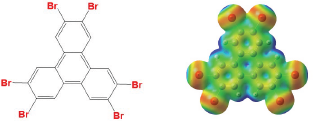Summer 2023 Research Opportunities
Specific ISRA opportunities will be canceled if enrollment minimums are not met. Should this occur, students will be given the chance to move to an opportunity with open seats or have their money refunded.
Face-to-Face ISRA Opportunities Scheduled for June 26th - June 30th, 2023
Biology
Investigating stress resistance in pathogens with Dr. Jan Dahl, Assistant Professor of Microbiology
Antibiotics are crucial medicines used for treating bacterial infections in humans and animals. Antibiotics were discovered as secondary metabolites secreted by microbes to suppress and nullify the growth of competing microorganisms. Without antibiotics, a common infection could potentially be life threatening. Unfortunately, due to antibiotic misuse, bacteria have gradually gained resistance to all major classes of antibiotics, while the discovery of new antibiotics has declined significantly. To mitigate this crisis, research efforts are being focused on identifying novel antibiotics through screening of bioactive secondary metabolites produced by soil microbes. More than half (60%) of currently used antibiotics were derived from Actinomycetota soil bacteria alone! Considering that a single gram of soil can harbor up to 1,000,000 species of bacteria, soil microbiota could potentially be a treasure trove of antibiotic synthesizing microbes. During the Illinois Summer Research Academy, we will use a variety of biochemical and microbiological techniques to isolate and screen for bioactive metabolite synthesizing microbes.
In addition, you will also investigate the responses of bacteria against hypochlorous acid, a key player in the mammalian host defense against invading pathogens. You will use a broad range of genetic, biochemical, and microbiological methods to study bacterial responses to HOCl. Our goal is to identify the genes that confer resistance to HOCl in bacteria and hence against the host immune response. (Minimum = 8 high school students and maximum = 12 high school students)
Chemistry
Biochemistry with Dr. Marjorie A. Jones, Professor of Biochemistry
Students will learn to grow Leishmania tarentolae, a one-celled organism, which is a pathogen for reptiles but not humans, so it can safely be used as a model system. Students will learn how to grow cells using sterile technique and measure cell growth using several enzyme assays. Students will also help perform spectroscopy assays to measure how additions of various compounds affect the cells. The long-term goal of this research is to propose new pharmaceutical drugs to treat human Leishmania diseases, which infect more than 20–25 million people worldwide and for which there are few good treatments. (Minimum = 4 high school students and maximum = 14 high school students)
Application of Computational Modeling to Solve Chemistry Problems with Dr. Bhaskar Chilukuri, Assistant Professor of Physical Chemistry
Conventional knowledge tells you that research in chemistry often involves studying and creating matter through laboratory experiments. However, NOT all properties/behavior of matter can be understood by experiments alone. In the Chilukuri lab, we use advanced computational modeling methods in tandem with experiments to study the fundamental behavior of matter for applications in fields like electronics, sensors, catalysis, and functional material development. During ISRA experience, students will be introduced to experimental and computational modeling techniques to study the properties of various organic and metal-organic species. With guidance and training, each participant will be preparing various chemical solutions, characterizing them with state-of-the-art instruments, run simulations on the respective chemical models using molecular modeling codes and analyze/compare the results from experiments and computations. The goal is to introduce students to computational chemistry and its application to solve experimental problems. Students will work in groups of two and at the end of the week present their work to their peers. (Minimum = 4 high school students and maximum = 6 high school students)

Typical molecular structure (left) and its corresponding electrostatic potential map (right). The map provides information about the electronic charge of the molecule (red- electron rich, blue-elect
Previous ISRA Research Opportunities
For more information about the Illinois Summer Research Academy, please visit:
Research Opportunities |
Cost and Scholarships |
How to Apply |
Schedule and Parking |
Photo Archive |
Media Coverage |
If you have additional questions or would like more information about the Illinois Summer Research Academy, please contact:
Olesya Courier, CeMaST Marketing, Event & Project Coordinator
Email:
ocourier@ilstu.edu
Phone: (309) 438-1898

